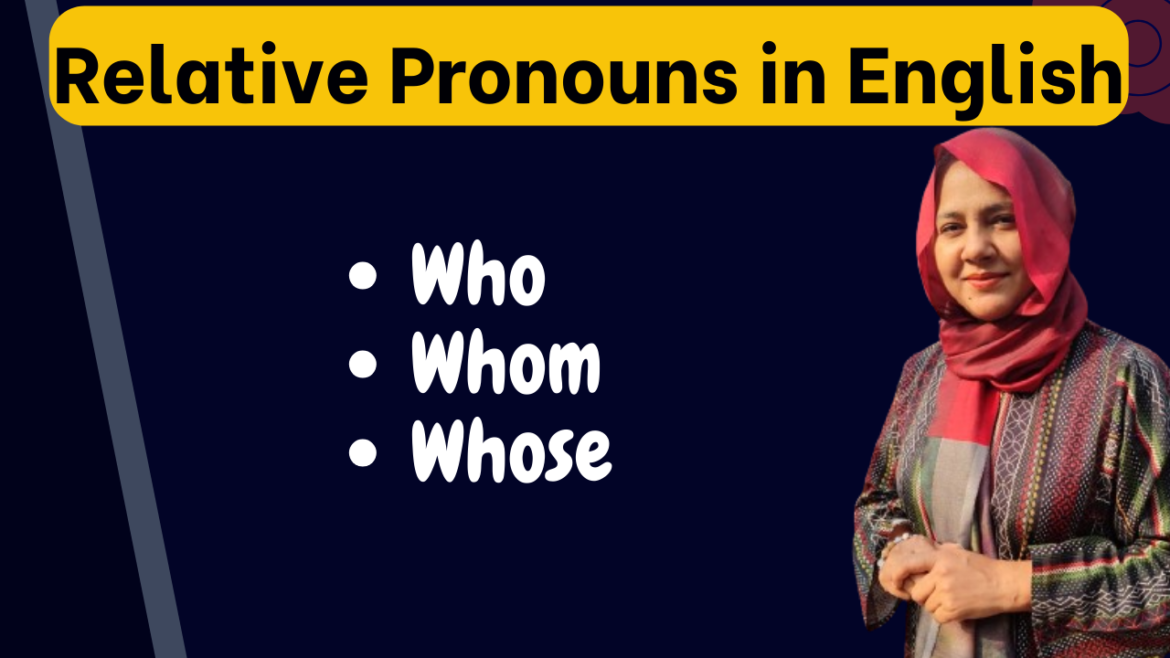Introduction: Understanding relative pronouns is essential for mastering English grammar. Among the most commonly used are “who,” “whom,” and “whose.” In this comprehensive guide, we’ll delve into the intricacies of these relative pronouns, providing clarity and examples to help you wield them with confidence in your writing.
What Are Relative Pronouns? Relative pronouns serve as bridges between different parts of a sentence, connecting a dependent clause to the noun it describes in the main clause. They not only link ideas but also replace specific nouns, streamlining our language.
Who vs. Whom vs. Whose: Differentiating the Trio
- Who: Used to refer to the subject of a sentence or clause. For example, “The girl who won the race is my sister.”
- Whom: Typically employed as the object of a verb or preposition in a clause. For instance, “To whom did you give the book?”
- Whose: Indicates possession and can be applied to both people and things. For example, “The house whose roof is red belongs to my grandparents.”
Examples Illustrating Usage:
Who:
- “The doctor who treated my father is very experienced.”
- “She is the student who scored the highest marks in the class.”
Whom:
- “The person whom I met at the conference was very knowledgeable.”
- “To whom did you send the invitation?”
Whose:
- “He is the author whose novels have captivated millions.”
- “The company, whose CEO recently resigned, is undergoing significant restructuring.”
Tips for Correct Usage:
- Identify the function of the relative pronoun in the sentence (subject or object).
- Use “who” when referring to the subject and “whom” when referring to the object.
- Remember that “whose” indicates possession, irrespective of whether the noun is a person or a thing.
Conclusion: “Who, whom, whose” are indispensable tools in English grammar, facilitating the seamless connection between clauses and enhancing the expressiveness of our language. With a firm grasp of their usage and application, you’ll elevate the sophistication of your writing and communicate with precision and flair.
For more insights into mastering English grammar and enhancing your writing skills, stay tuned to our blog!


